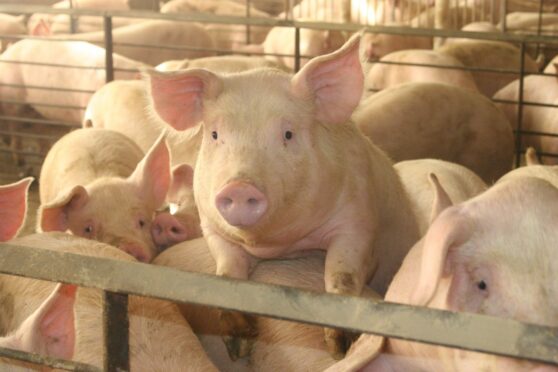Hundreds of additional temporary visas for foreign butchers have been announced by the UK Government as part of a package of support following calls from the industry to intervene over labour shortages.
It comes after warnings that up to 150,000 pigs could be destroyed as waste as the labour shortage in meat processing has led to a backlog of animals ready for slaughter.
Measures announced by the government include up to 800 visas for butchers to come to the UK for up to six months.
Funding
Under the plans, there will also be funding made available for additional meat storage, moves to introduce processing of animals on Saturdays and the potential for longer working hours.
National Farmers Union vice-president Tom Bradshaw said that the visa announcement was a “step in the right direction”.
The government said the pig industry has faced challenges in recent months because of the pandemic and the temporary suspension of approval to export to China for some UK pork establishments.
These issues have led to a backlog of pigs awaiting slaughter, the government said.
Environment Secretary George Eustice said: “A unique range of pressures on the pig sector over recent months such as the impacts of the pandemic and its effect on export markets have led to the temporary package of measures we are announcing today.
“This is the result of close working with industry to understand how we can support them through this challenging time.”
Up to 800 pork butchers will be eligible to apply for six-month visas from the existing allocation in the Seasonal Workers Pilot Scheme up until December 31.
Temporary
The government said the move is temporary and is in addition to foreign butchers already being eligible since December 2020 to apply to come to the UK through the existing skilled worker route.
A spokesperson for the National Pig Association said: “We are so very relieved that the government has finally released some measures aimed at reducing the significant pig backlog on farms.
“We are working with the processors to understand the impact of these new measures and to determine exactly what will happen now, and how quickly, so that we can give pig farmers some hope and stem the flow of healthy pigs currently having to be culled on farms.”

